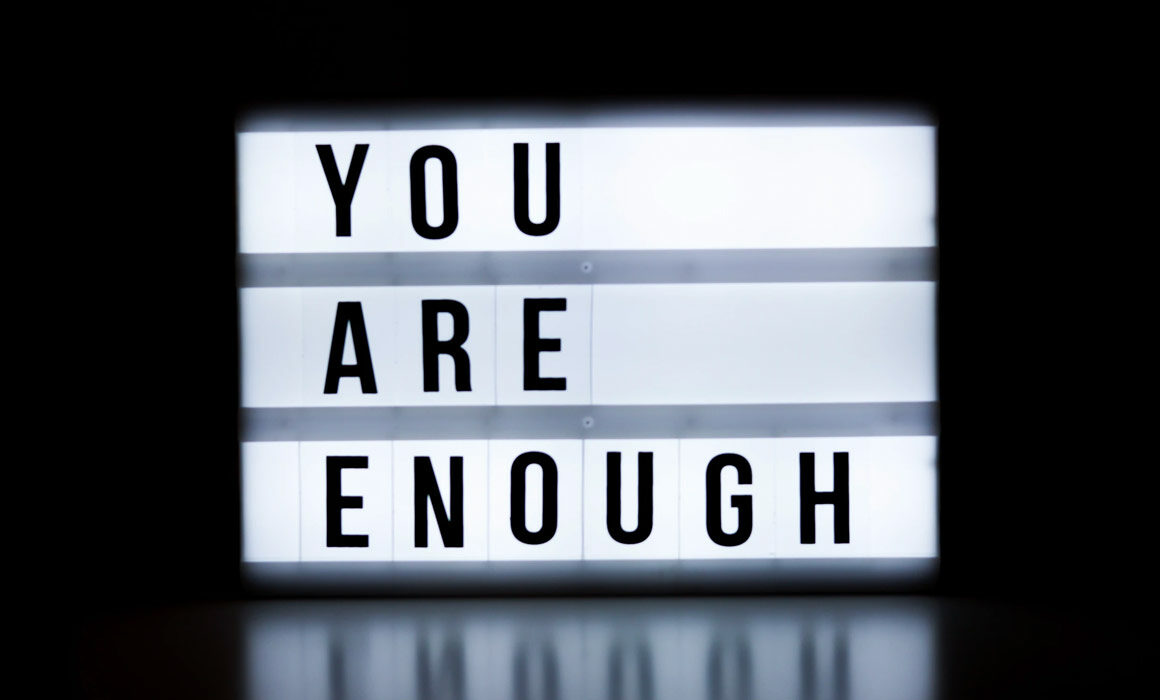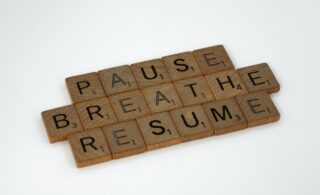
With your confidence taking a knock after a breast cancer diagnosis, this article gives some supportive advice about rebuilding your confidence.
By Allie Morgan
Life after cancer
Life after cancer can be tough. It’s not just a case of stepping back into the same old routine. Cancer turns your whole world upside down and leaves you a bit lost when it comes to the end of your treatment.
For me, it was my confidence that took a big hit after I finished chemo. At 15, I should have been drinking WKD’s at house parties with my friends – instead, I was learning to live independently after spending almost a year with my poor mother sleeping beside me.
Twelve years on, I’m more confident than ever and I wanted to share some wisdom with you that I wish I’d known when I finished my cancer treatment. Here are my top tips:
My 4 best tips for building confidence after cancer
- Build a strong support network
The people around you are so, so important at a time like this. After spending day after day at the hospital, your diary suddenly becomes wide open again, with no appointments for months.
You might notice that people tend to drift back to their own lives once your cancer treatment is over as they think you’re ‘better’. Of course, they love you and they want you to be well, but life after cancer can seem lonely for a while, which is bound to knock your confidence.
My tip here is to be honest with people. Tell your family and friends how you’re feeling. If you’re still exhausted from your treatment, ask them to come to you instead of visiting them. Open up if you’re feeling alone and seek help from counsellors if you need to.
Your support network will get you through so it’s worth making a good one. Here’s some more advice on rebuilding friendships after cancer.
2. Give your body the love it needs
Whether you’re left with scars, weight gain or hair loss, it’s inevitable that cancer treatment will change your body. I’ve got three scars that I’ve grown to love – the biggest being the one on my leg where I had surgery to remove my bone and replace it with a metal joint.
You might have mixed feelings about your body. For starters, it probably looks different to how it used to and it might feel different too. But on top of that, you can swing between feeling frustration that your body had this disease in the first place and gratitude that it was strong enough to get through it.
I had a complicated relationship with my body for a long time but I’ve found that I love it so much more now than I ever did, even before I had cancer. Just taking a few minutes each day to really give your body the compassion it deserves can help you build your confidence back,
Treat yourself to some new bath products or a rich, moisturising cream and spend time getting to know your body again. Get used to the feel of your skin and the dent of your scars.
Your body is precious and nourishing it can help you to look at it in a more positive light. Listening to a body scanning session on YouTube or a meditation app can also help you to get to know your body a little better.
3. Take small steps to return to work
Part of your cancer recovery will involve getting back into your work or education.
This can take time so try not to rush back, unless you feel ready.
Your employer should have accommodated you throughout your treatment and finishing your treatment should be no different. Talk to your boss and HR department about your options, whether it’s coming in for a few days a week at first or working from home, if you’re able to.
It can be good to visit your workplace once your treatment has finished to check in with everyone and gain clarity on how you’ll return to work fully. But it can also be daunting and a little awkward with your work colleagues.
Take a deep breath before you go in and try to relax your shoulders. The more laidback you are, the more laidback everyone else will be. If you want some additional support, ask if you can take someone in like a coach, consultant or a friend, to boost your confidence.
Also, ask if your point of contact at your workplace can brief the rest of your team before you come in. That way, they’ll know how things stand with you at the moment and you won’t have to have the same conversation twenty times!
4. Spend time with yourself
I’m a big believer that confidence isn’t about showing off or being the best at something. When I work with my clients, we focus more on self worth as the way you view yourself can make a huge difference to your confidence.
Spending time alone, getting to know the new you, who has been through cancer and come out the other side, is invaluable when it comes to confidence. Keeping a daily journal can help you to work through your feelings and experiences, as well as being a way to track your progress. Meditation can also help you to slow any racing thoughts and focus on the present moment. Both of these have helped me to process my experience with cancer and move forward with my life.
When you start to understand yourself better, you can begin to see that you’re not defined by cancer. You’re so much more than that. And you’re worthy of living your life to the full.
So go ahead.
About the author
Having had cancer at a young age, as a adult Allie trained as a Confidence Coach and she worked with cancer survivors and those with chronic illnesses. After overcoming bone cancer at the age of 14, Allie knew that the end of treatment could be a difficult time for a lot of cancer patients and wanted to offer support for those finding it tough to get back into ‘normal’ life. Through her use of confidence-building techniques, Allie helped to make those who have suffered from serious or chronic illness to feel empowered, and able to write the next chapter of their life. Allie no longer practices as a coach but is living her life to the full, embracing everything she learnt during her time as a coach.
Further information
Future Dreams hold a range of support groups, classes, workshops and events to help you and your carers during your breast cancer diagnosis. These are held both online and in person at the London-based Future Dreams House. To see what’s on offer and to book your place, see here.
To return to the homepage of our Information Hub, click here where you can access more helpful information, practical advice, personal stories and more.
Reviewed October 2023
The information and content provided in all guest articles is intended for information and educational purposes only and is not intended to substitute for professional medical advice. It is important that all personalised care decisions should be made by your medical team. Please contact your medical team for advice on anything covered in this article and/or in relation to your personal situation. Please note that unless otherwise stated, Future Dreams has no affiliation to the guest author of this article and he/she/they have not been paid to write this article. There may be alternative options/products/information available which we encourage you to research when making decisions about treatment and support. The content of this article was created by Allie Morgan and we accept no responsibility for the accuracy or otherwise of the contents of this article.
Share

Support awareness research
Donate to those touched by BREAST cancer
Sylvie and Danielle began Future Dreams with just £100 in 2008. They believed nobody should face breast cancer alone. Their legacy lives on in Future Dreams House. We couldn’t continue to fund support services for those touched by breast cancer, raise awareness of breast cancer and promote early diagnosis and advance research into secondary breast cancer without your help. Please consider partnering with us or making a donation.



